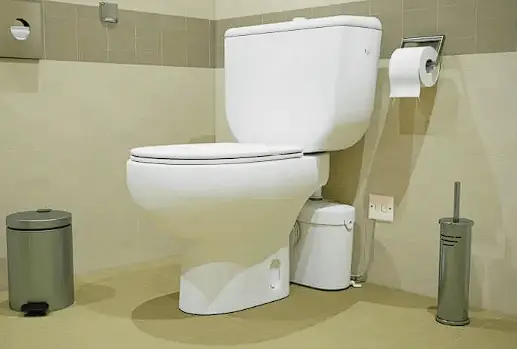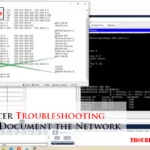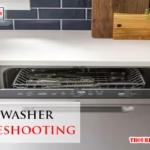For effective Saniflo toilet troubleshooting, start by checking the power supply and reset button. Next, ensure the macerator and pipes are clear of blockages.Dealing with a malfunctioning Saniflo toilet can be frustrating, but a systematic approach can resolve most issues. These compact systems rely on a unique macerating and pump mechanism to move waste, making the usual plumbing fixes slightly different. Quick and accurate diagnosis is key to getting your Saniflo toilet back in working order.
Whether it’s a non-starting motor, a humming noise, or a backup issue, most solutions are straightforward and can be handled without calling in a professional. Regular maintenance and prompt attention to any signs of trouble can prevent major malfunctions and ensure the longevity of your unit. Remember to consult the user manual for specific guidance tailored to your Saniflo model.
Introduction To Saniflo Toilets
Saniflo toilets revolutionize the way we approach bathroom installations. These innovative systems allow for a bathroom in virtually any space without major plumbing renovations. Understanding how Saniflo toilets work is key to troubleshooting them effectively.
The Basics Of Macerating Toilet Systems
Macerating toilets, like Saniflo, use a unique system to dispose of waste. A powerful macerating pump grinds and pumps waste through a small pipe to the existing sewer line. This design simplifies installation and opens up new possibilities for bathroom placement in homes and businesses.
- Efficient waste disposal: Macerating pumps grind waste into a fine slurry.
- Small-diameter piping: Waste is expelled through pipes as small as one inch in diameter.
- Versatile installation options: Install a bathroom almost anywhere, without extensive plumbing.
Common Reasons For Saniflo Issues
While Saniflo toilets are reliable, issues may arise. Recognizing common problems helps in quick troubleshooting.
| Issue | Possible Cause |
|---|---|
| Non-flushing | Blocked blades or a jammed motor |
| Strange noises | Foreign objects or worn components |
| Leaks | Loose connections or seal deterioration |
| Odors | Ventilation issues or clogs |
Regular maintenance keeps Saniflo systems running smoothly. When issues do occur, most can be fixed with basic troubleshooting steps.

Identifying Common Problems
Saniflo toilets are a game-changer in home plumbing. Yet, like all technology, they may face issues. Understanding common problems helps fix them fast. This guide dives into identifying the most frequent troubles.
Unusual Noises
Strange sounds from your Saniflo toilet can alarm anyone. These noises often hint at motor or macerator issues. A humming or buzzing sound suggests the motor struggles, possibly due to blockage or wear. A professional can best address this, ensuring the system runs smoothly again.
Failure To Flush
Flushing problems are a primary concern. They can stem from power issues, blockages, or faulty switches. First, check the power supply. Next, inspect for blockages in the toilet or external pipes. If these steps don’t help, the issue might be with the flushing mechanism itself, requiring expert attention.
Unpleasant Odors
Bad smells should not come from your Saniflo toilet. If they do, it’s likely due to blockages or ventilation problems. Regular maintenance and clearing any visible blockages can often solve this issue. Ensuring proper ventilation is also crucial to prevent odors from lingering.
Regular Maintenance Tips
Keeping your Saniflo toilet in tip-top shape is essential. Regular maintenance helps prevent common issues. Follow these simple tips to ensure your system runs smoothly.
Cleaning Best Practices
Clean your Saniflo toilet regularly to avoid unwanted odors and blockages. Use gentle cleaners to protect the internal mechanisms. Harsh chemicals can damage your Saniflo unit.
- Avoid bleach – it harms the macerator.
- Use Saniflo-approved cleaning products.
- Clean the toilet bowl weekly for best results.
- Descale the macerator every six months to prevent buildup.
Routine Inspection Checklist
Inspect your Saniflo system often. Use this checklist to catch issues early.
| Component | Action | Frequency |
|---|---|---|
| Macerator | Listen for unusual noises | Each use |
| Pump | Check for smooth operation | Monthly |
| Pipes | Look for leaks or damage | Quarterly |
| Electricals | Ensure safe connections | Semi-annually |
Remember to power off the unit before any inspection. This ensures your safety and the integrity of the system.
Troubleshooting The Motor And Macerator
Saniflo toilets offer convenience and efficiency in waste disposal. Like all complex systems, they may require troubleshooting. A common issue involves the motor and macerator. Understanding how to address problems with these components keeps your Saniflo unit running smoothly.
Resetting The Motor
Resetting the motor can resolve many issues. Perform this task with care.
- Turn off the power to the unit.
- Wait a few minutes.
- Turn the power back on.
Check the unit’s operation post reset. The motor should restart without hiccups.
Unclogging The Blades
Clogs can halt your unit’s function. The macerator blades grind waste. They need to be free of obstructions.
Follow these steps to unclog the blades:
- Disconnect power to ensure safety.
- Access the macerator unit. Refer to the manual for guidance.
- Locate the blades. They are at the heart of the unit.
- Remove debris carefully. Use gloves for protection.
Reassemble the unit. Restore the power. Test the system to confirm success.
Resolving Flush Issues
Resolving Flush Issues with your Saniflo toilet can be straightforward. This section will guide you through common problems and solutions. Let’s ensure your toilet flushes smoothly again.
Adjusting The Flush Mechanism
At times, the flush on your Saniflo toilet may need adjustment. Follow these steps:
- Remove the toilet lid carefully.
- Locate the flush mechanism. It’s usually in the center.
- Adjust the mechanism. Look for a dial or screw.
- Test the flush. Make sure it works as expected.
This process can fix a weak or partial flush.
Dealing With Overflows
Overflows can be messy. Here’s how to tackle them:
- Stop using the toilet immediately.
- Check the flush mechanism. It might be stuck.
- Clear any blockage. Use a plunger gently.
- Contact a professional if the problem persists.
Regular maintenance prevents overflows. Keep your Saniflo toilet clean.
Fixing Electrical Problems
Saniflo toilets are known for their reliability and convenience. Yet, they may face electrical issues. Understanding how to troubleshoot these problems can save time and money. This section guides you through common electrical issues and how to resolve them.
Power Supply Checks
Start with the basics. Ensure your Saniflo unit is plugged in. Next, check your circuit breaker. Did it trip? Reset it if necessary. Use a voltage tester to check for power at the outlet. No power means an electrician might be needed.
Alarm System Faults
A Saniflo alarm signals issues. Is the alarm silent? Check if it’s connected. If it beeps, check the manual. It often means a blockage or a motor issue. Ensure the alarm system is clean and dry. Moisture can cause false alarms.
| Problem | Check | Action |
|---|---|---|
| Unit Won’t Start | Power Supply | Check Breaker |
| Alarm Beeping | Alarm Connection | Consult Manual |
| False Alarm | Alarm Condition | Clean and Dry |
- Always start with simple solutions.
- Manuals provide specific troubleshooting steps.
- Professional help may be needed for complex issues.
Addressing Unpleasant Smells
Unpleasant smells from a Saniflo toilet can be off-putting. They suggest an issue with the system. Proper troubleshooting can fix these odors. Here are steps to ensure your Saniflo toilet smells fresh.
Seal And Ventilation Checks
Check the seals on your Saniflo system first. Broken seals let odors escape. Inspect the base and the connection to the toilet. Any gaps need sealing right away. This stops smells.
Examine the ventilation system next. Saniflo toilets need good venting. Make sure the vent is clear. Blocked vents trap odors. They must be clean for a smell-free bathroom.
Using Saniflo-specific Cleaners
Saniflo systems require special cleaners. Regular chemicals can harm the macerator. Use Saniflo-approved cleaners only. These cleaners protect the parts and prevent smells.
- Follow the cleaner’s instructions.
- Clean regularly for best results.
- Avoid bleach and harsh chemicals.
By using the right products, you keep your Saniflo toilet fresh and functional.
Professional Intervention
Troubleshooting a Saniflo toilet can often be done without expert help. But sometimes, you need a professional. You might wonder when it’s time to call a plumber. Or what to do if your Saniflo is under warranty. This section will guide you through these questions.
When To Call A Plumber
Some issues with your Saniflo toilet need a plumber’s touch. Look for these signs:
- Strange noises: Gurgling or humming could mean trouble.
- Water not draining: A blockage may be the culprit.
- Leaks: Water on the floor isn’t a good sign.
- Unpleasant smells: Persistent odors need attention.
If you see these problems, don’t wait. Call a plumber to prevent more damage.
Warranty And Service Calls
Your Saniflo toilet warranty covers certain repairs. Keep these points in mind:
| Warranty Period | Parts Covered | Service Calls |
|---|---|---|
| Varies by model | Motor, casing, and more | Usually free |
Check your warranty before calling a plumber. Saniflo might cover the fix. Keep your warranty document safe. You’ll need it for service calls.
Prevention Strategies
Prevention Strategies play a vital role in the smooth operation of your Saniflo toilet. By following simple guidelines, you can avoid common issues. Let’s explore effective methods to keep your Saniflo system functioning properly.
Proper Usage Guidelines
Saniflo toilets are designed for specific uses. It’s crucial to understand what can and cannot be flushed. This knowledge will prevent blockages and maintain system health.
- Only human waste and toilet paper should be flushed.
- Flush regularly to avoid waste accumulation.
- Never flush sanitary products, wet wipes, or diapers.
- Avoid excessive toilet paper in a single flush.
- Keep the lid closed to prevent foreign objects from falling in.
Products To Avoid
Certain products can damage your Saniflo system. Understanding which products to avoid is essential.
| Product Type | Examples |
|---|---|
| Cleaning Agents | Bleach, ammonia, and abrasive cleaners. |
| Hygiene Items | Cotton buds, tampons, and dental floss. |
| Kitchen Waste | Grease, oil, and food scraps. |
| Chemicals | Paints, solvents, and pesticides. |
By adhering to these prevention strategies, you’ll safeguard your Saniflo toilet against common problems. Remember, proper care extends the life and efficiency of your system.
Frequently Asked Questions
Why Is My Saniflo Toilet Not Flushing?
Saniflo toilets may not flush due to a blockage, an issue with the macerator, or electrical problems. Check for clogs and ensure the unit is powered.
Can A Saniflo Toilet Overflow?
Yes, a Saniflo toilet can overflow if the macerator is blocked or malfunctioning. Regular maintenance can help prevent this issue.
How Do You Unclog A Saniflo Toilet?
Unclogging a Saniflo toilet involves turning off the power, draining the unit, and removing any obstructions in the macerator or connecting pipes.
What Causes Saniflo Noise During Operation?
Excessive noise from a Saniflo toilet often indicates a blockage or worn-out parts within the macerator. Inspect for obstructions and wear.
How Often Should Saniflo Systems Be Serviced?
Saniflo systems should be serviced every 12 to 18 months to ensure optimal performance and prevent potential issues. Regular checks can extend the unit’s lifespan.
Conclusion
Navigating Saniflo toilet issues can be straightforward with the right guidance. This guide has aimed to demystify common problems and offer practical solutions. Remember, regular maintenance is key to preventing future troubles. Should challenges persist, seeking professional help is always a wise choice.
Keep this advice in hand for a hassle-free Saniflo experience.






